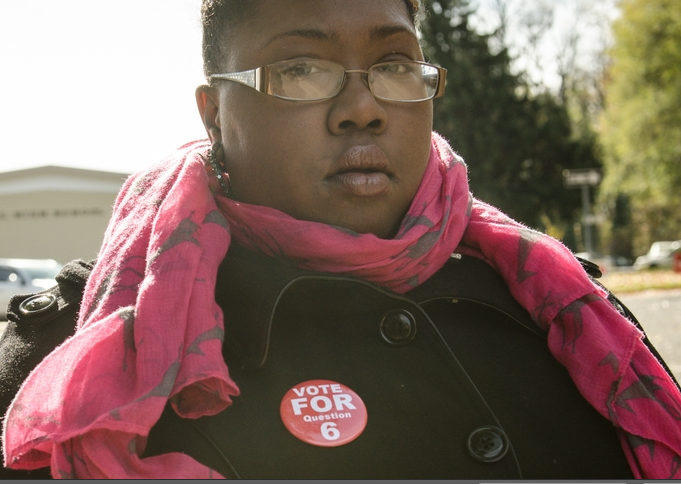This first ran on The Dissolve.
____________________
“It is my people. I’m a sistah in the movement,” Sharon Lettman-Hicks says early in The New Black. She spells it out herself: “S-I-S-T-A-H.” Lettman-Hicks is the executive director and CEO of the National Black Justice Coalition, and the movement she’s talking about is the push for LGBT rights. When she talks about that movement in language that recalls the black civil-rights struggle, it’s because she sees them as one and the same. As she says, gay marriage is part of “the unfinished business of black people being free.”
As The New Black notes, this isn’t always the way the media frames the relationship between the black and gay communities. After the 2008 election, in which Barack Obama won the presidency and California passed a ballot referendum making gay marriage unconstitutional, black voters, seen as religious and socially conservative, were blamed for the loss.
The New Black, which focuses on the 2012 ballot referendum on gay marriage in Maryland, is committed to showing that the easy opposition between blacks and LGBT is a false one. In part, it tackles this by foregrounding black, LGBT people, such as Irene Huskens, a police officer who tearfully talks about marrying her partner so she and their children can be a family. But like Lettman-Hicks (who is straight), the film insists that gay marriage and the civil-rights struggle are continuous issues, so the former is central to the black experience in general. One preacher, speaking from the pulpit on election day, tells his congregation that Question 6, the Maryland gay-rights proposition, is a “referendum on the church”—a moral test of the black community’s commitment to equality for all.
Obviously, not all black preachers, and not all black people, feel that way. The New Black is unabashedly pro-gay marriage, but it treats the other side respectfully. Opponents of gay marriage in the community are given their say. Pastors talk about the Bible. A congregant stands up to explain that being gay isn’t a civil-rights issue, because unlike being black or female, it’s a matter of choice. One of Lettman-Hicks’ house guests worries out loud about his son being corrupted by the homosexual agenda.
Including these voices is a painful, but, the film implies, necessary step, not for a balanced presentation, but because the community that includes black and LGBT people also includes homophobia. In fact, homophobia and queerness often exist together, side by side, or pew by pew.
At one point, The New Black takes a detour to trace the career of Tonéx, a highly successful gospel performer who came out in 2009 on The Lexi Show (“Have you struggled with homosexuality?” Lexi asks. “It wasn’t a struggle,” Tonéx responds. Cut to Lexi looking like someone has slapped her with a carp.) The material about Tonéx is fascinating, but initially seems to have little directly to do with the gay-marriage question in Maryland—until the film shows several gay Question 6 activists talking effusively about Tonéx, and how he’s represented not just the out queer community, but all the closeted queer people in all the African-American church choirs. As Anthony Heilbut chronicles in his 2012 essay collection The Fan Who Knew Too Much, closeted LGBT people, from James Cleveland to Alex Bradford to Ruth Davis, have been central to the African-American gospel tradition, and so to the African-American church. Whether acknowledged or not, they’re as much a part of conservative black church life as they are of any other part of the black experience. Love them or hate them, they’re family.
So the title, The New Black, has a double—or triple—meaning. It refers to the LGBT community, which can be seen as a new civil-rights movement. It refers to a new black identity, which can include LGBT people. And it also, ironically, refers to the fact that there is no new black; black identity and LGBT identity have always been part of the same community. When Question 6 passes, Huskens tearfully kisses her soon-to-be-wife and hugs their children. Huskens’ mother-in-law-to-be struts across the kitchen, looks in the camera, and exclaims, “Yes we can!” There couldn’t be a clearer statement that the black family and the LGBT family are one and the same.

